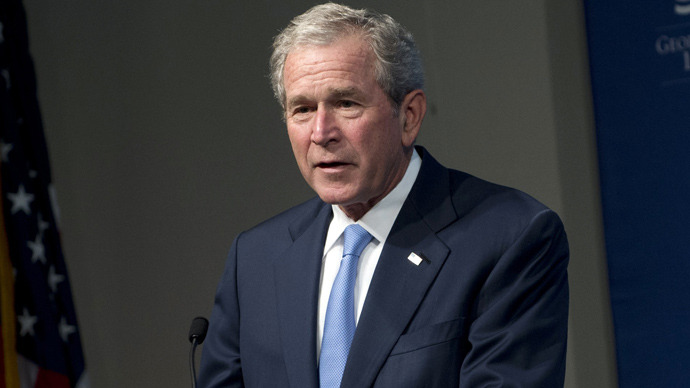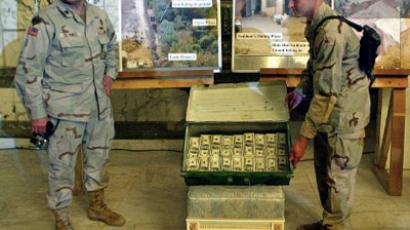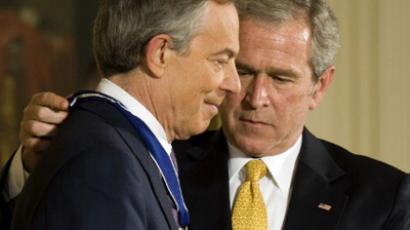Bush still thinks Iraq War was a good idea

Former US President George W. Bush still reflects proudly on his presidency and maintains that the choices he made were good political decisions – despite the fact that he led the US into a drawn-out war in Iraq based on false pretenses.
In an exclusive interview with the Dallas Morning News this week, Bush said he is not interested in “finger pointing” or “self-pity” regarding policies and political decisions made during his time in the White House, but also noted that his presidency was largely shaped by unexpected and disastrous events, such as the 9/11 terrorist attacks and Hurricane Katrina.
As for the wars in Afghanistan and Iraq, the former president said he is “confident the decisions were made the right way.”
“I’m comfortable with what I did,” Bush said while reflecting on the legacy he left behind as president. “I’m comfortable with who I am.”
Looking back at “the realities of the situation 10 years ago,” the former president said that the Iraq invasion had garnered bipartisan support and that his predecessor, Bill Clinton, also sought a regime change in Baghdad.
“It’s easy to forget what life was like when the decision was made,” he told the Dallas Morning News.
Bush has often come under scrutiny for leading the US into war with Iraq on the pretense of finding weapons of mass destruction, costing taxpayers $1.7 trillion with $490 billion more in veteran benefits. About 134,000 Iraqi civilians are believed to have died in the conflict, according to the Costs of War Project. But after US forces retreated from the broken country, Iraq remains wrecked and unstable.
The US spent more than $60 billion on reconstruction grants in Iraq, many of which went to abandoned projects or government contractors who overcharged the US.
During the tenth anniversary of the Iraq invasion, criticism of the war spiked as the extent of wasteful spending resurfaced amid description of a country that continues to crumble in the rubble of forgotten projects.
The costs of the conflicts in both Iraq and Afghanistan could end up costing the federal government between $4 and $6 trillion, according to a recent Harvard study. But despite the high costs of life and taxpayer dollars, Bush did not admit any wrongdoings and attempted to keep controversial points out of the interview.
The former president made no mention of weapons of mass destruction or other controversies, such as the CIA’s use of “enhanced interrogation techniques” that included waterboarding and sleep deprivation.
Instead, Bush spoke mainly about his retirement, his newly-born granddaughter, his hidden talent at painting and his love for mountain biking.
When asked about the economy, he told the reporter that he has “no burning desire” to discuss politics anymore.
“People ask me, ‘What about the economy?’” Bush said. “My answer is, ‘Why don’t you go hire an economist?”
More than four years after he left the White House, he is trying to stay out of the spotlight. But the George W. Bush Presidential Center, a complex that will include a library and a museum, is scheduled to open next week, thereby reigniting debate on the former president’s policies.
But even though Bush continues to be criticized for the policies that led America into drawn-out conflicts and expensive foreign projects, he says he has no new regrets about his tenure in the oval office.














